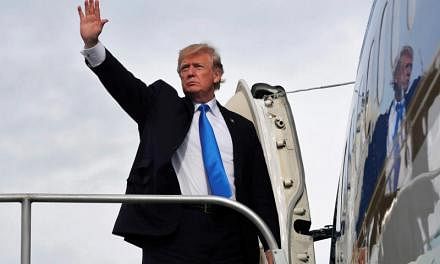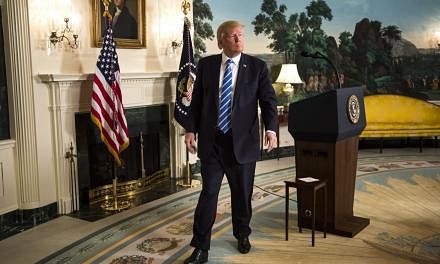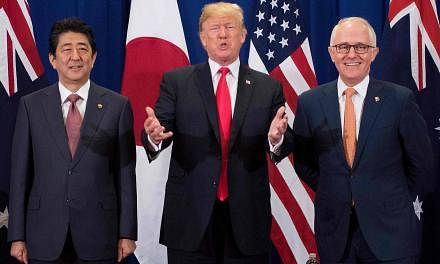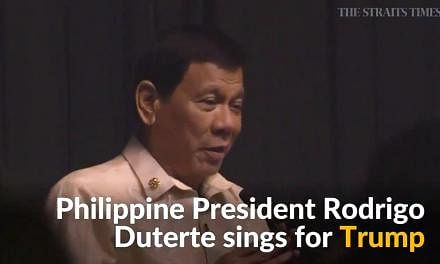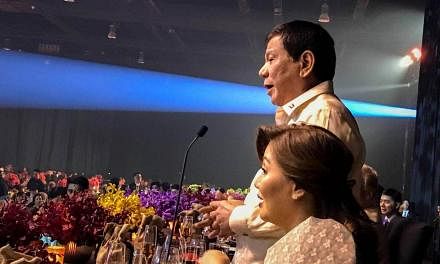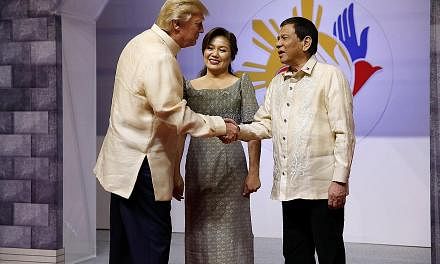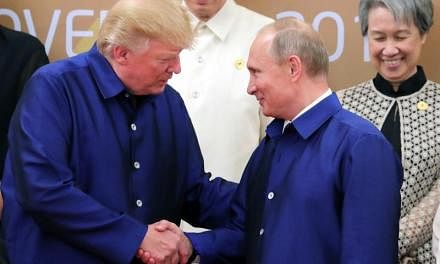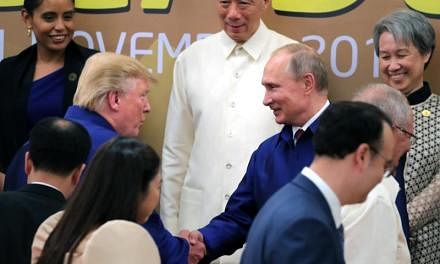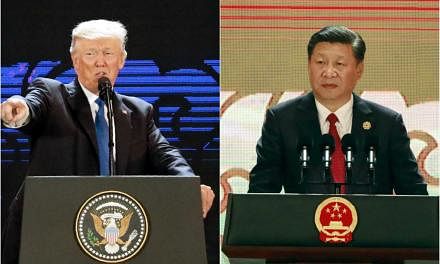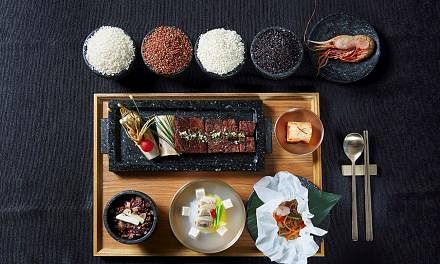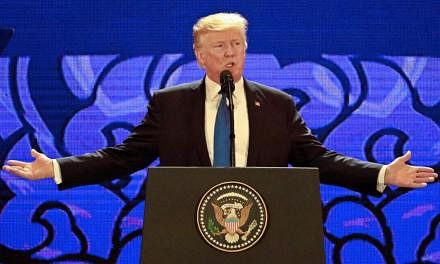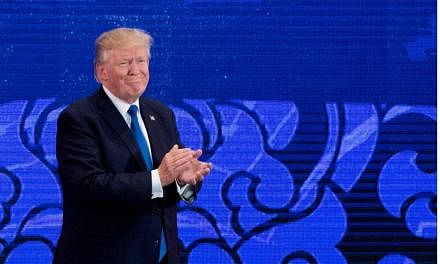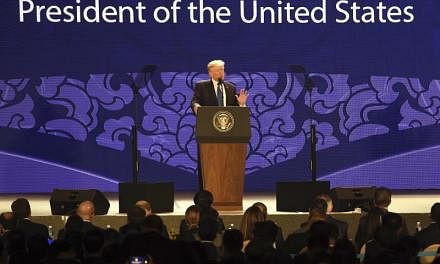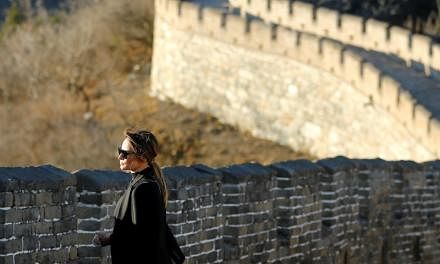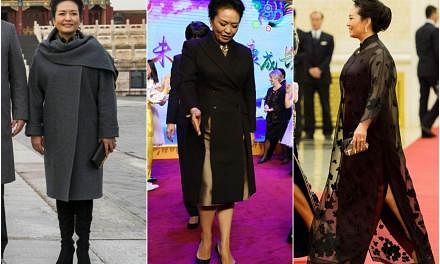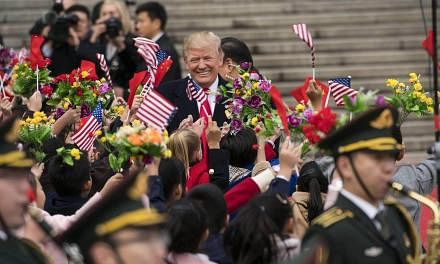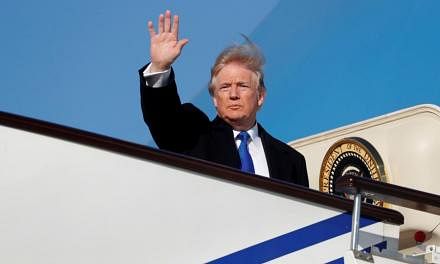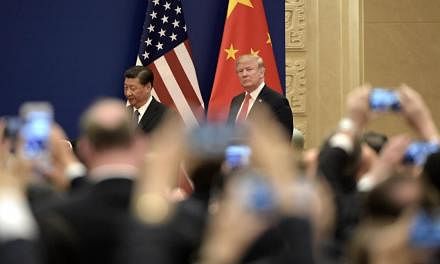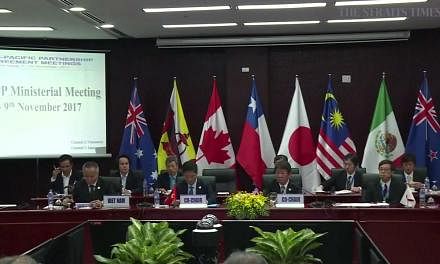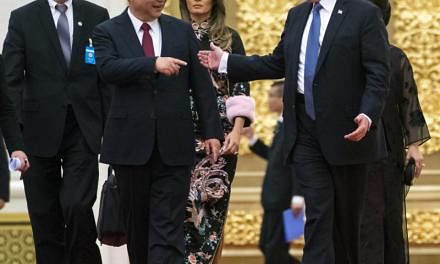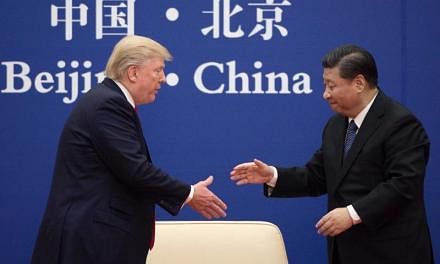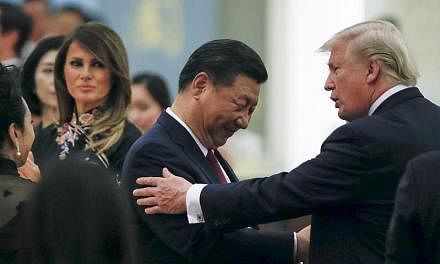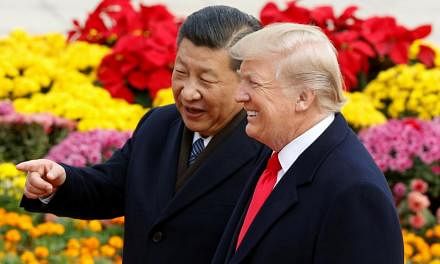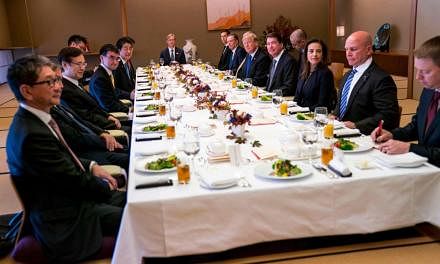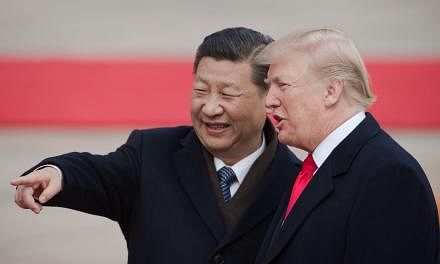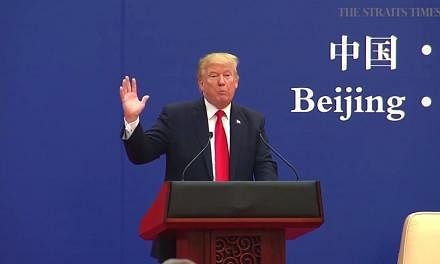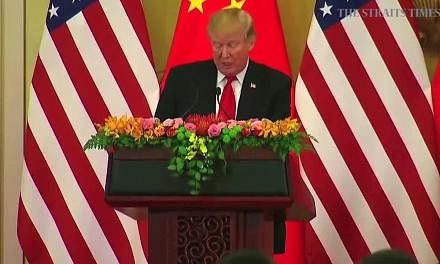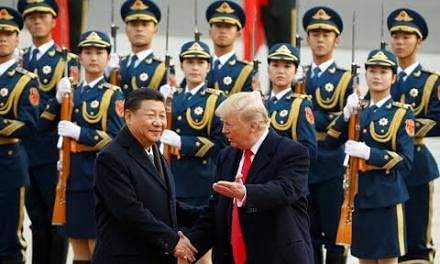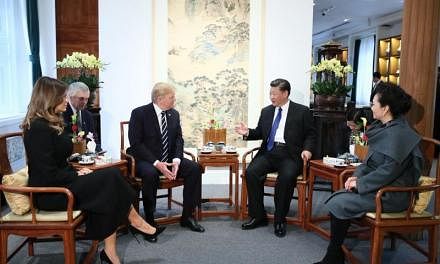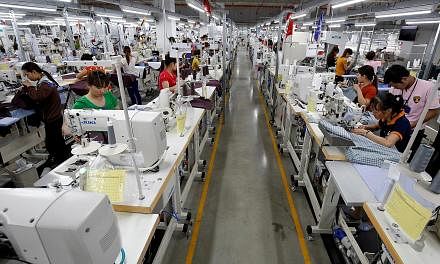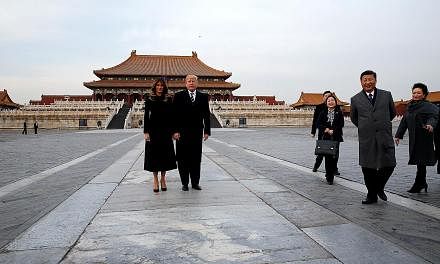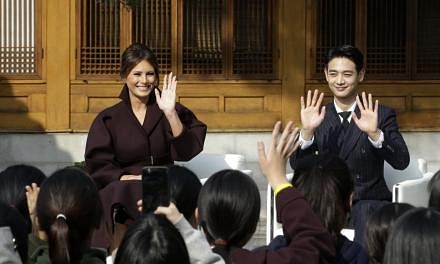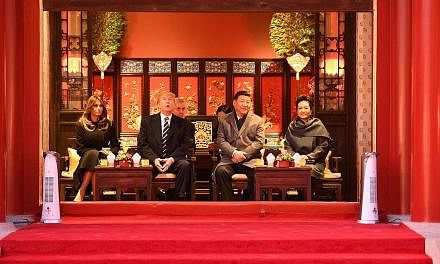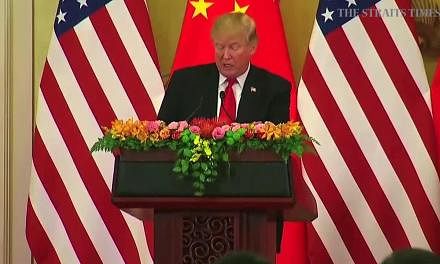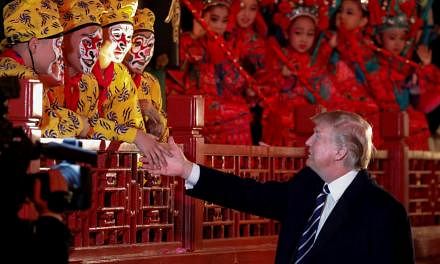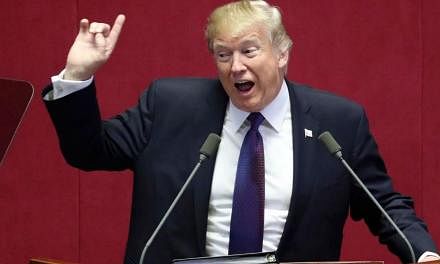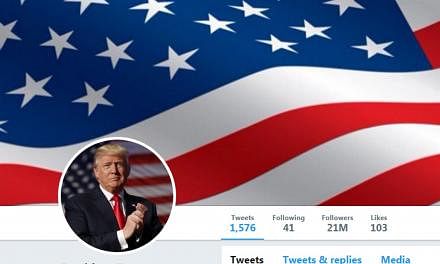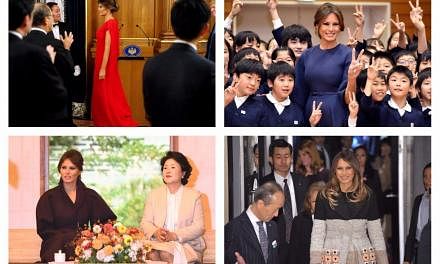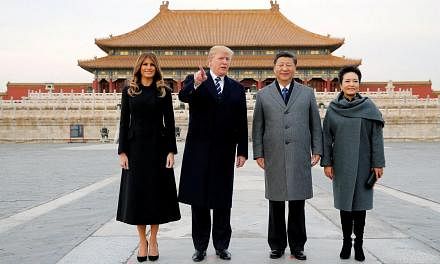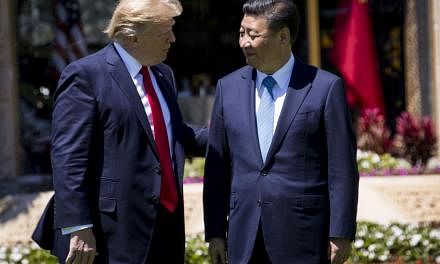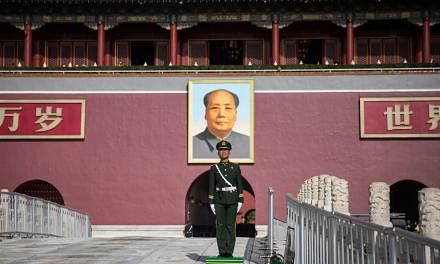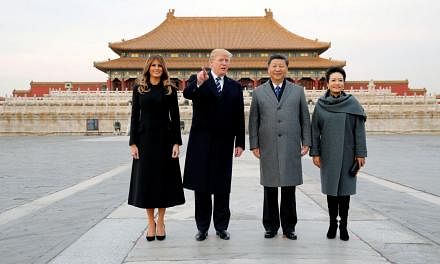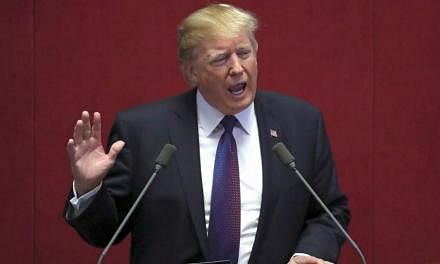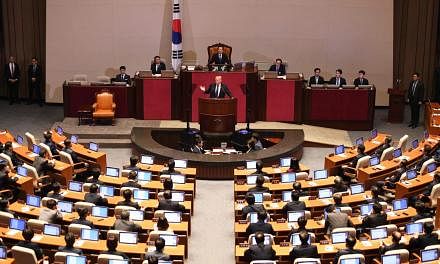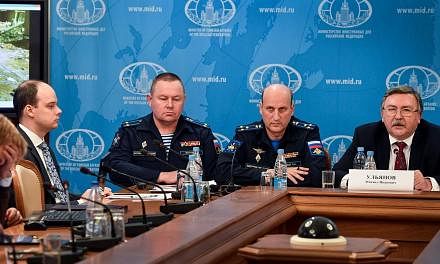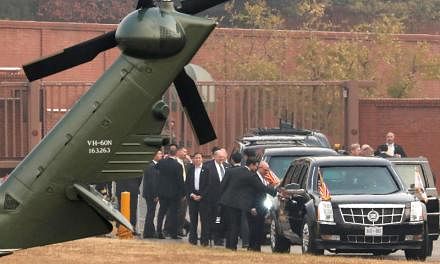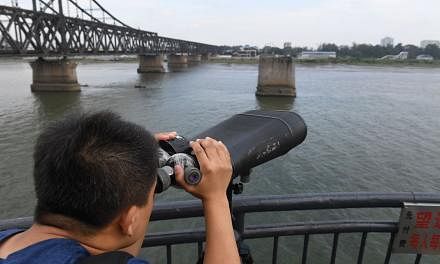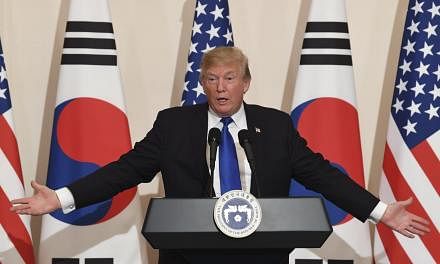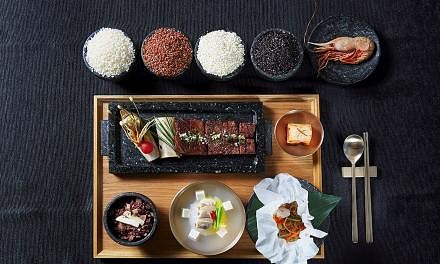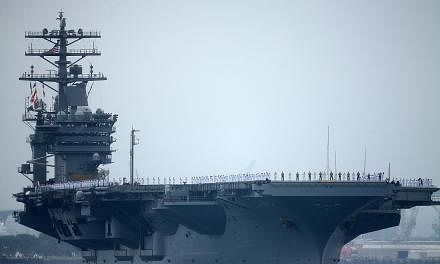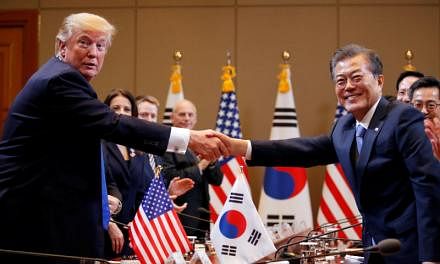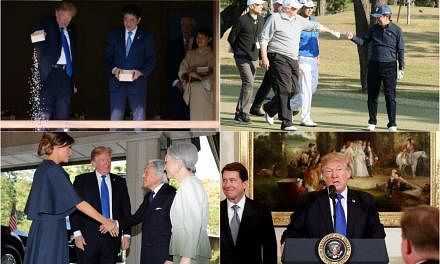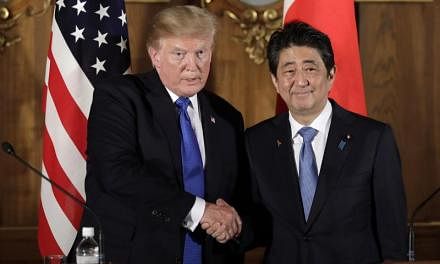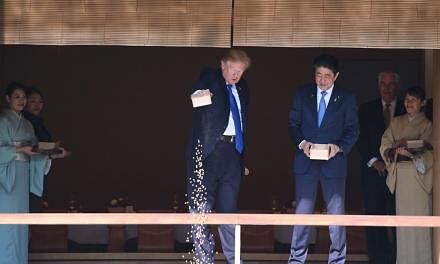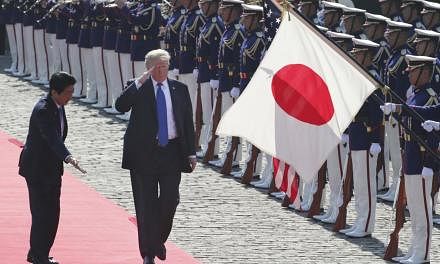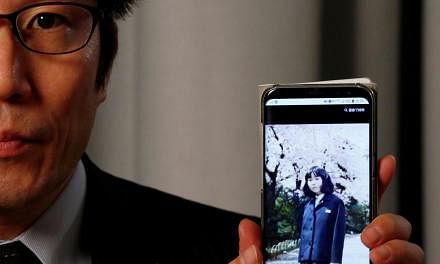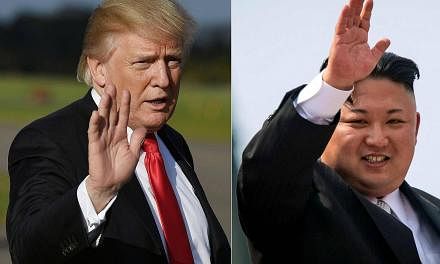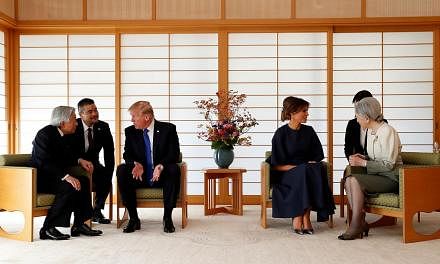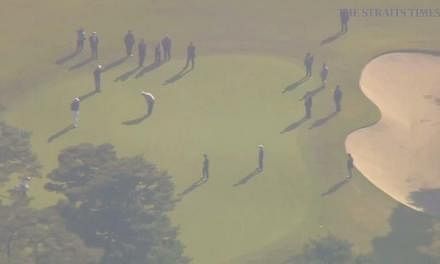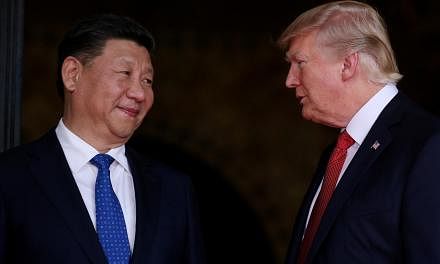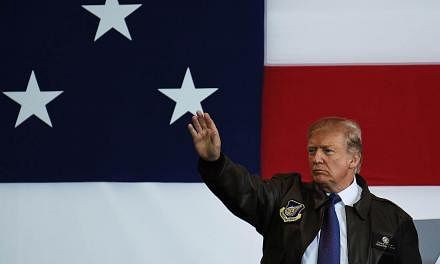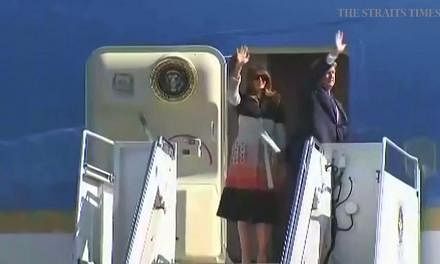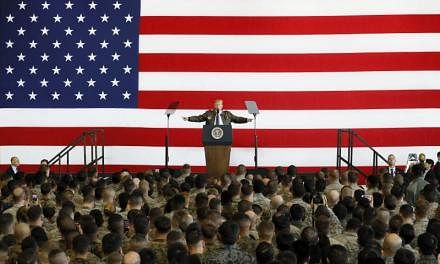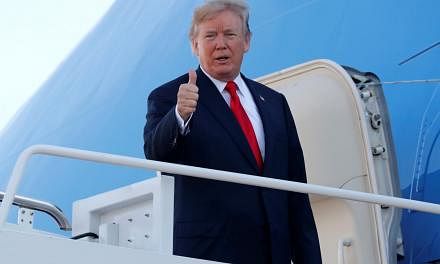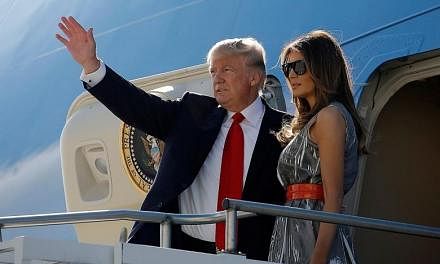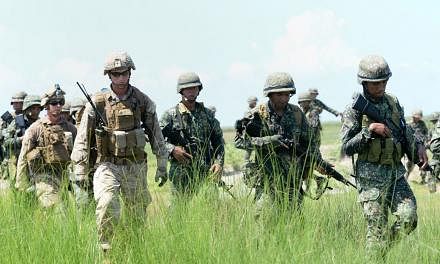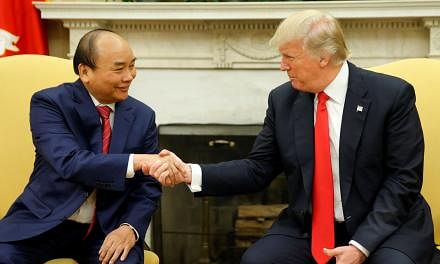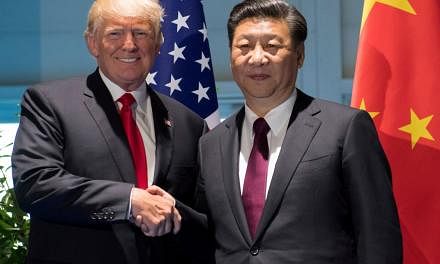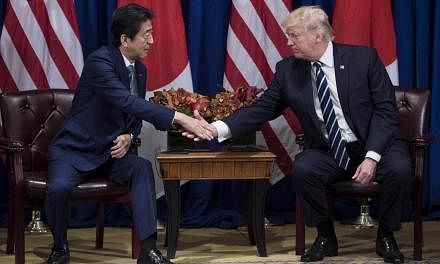(BLOOMBERG) - Vladimir Putin is feeling jilted.
The last time he and US President Donald Trump met, in July at the G-20 summit, Trump couldn't seem to get enough of the Russian president.
They met behind closed doors for more than two hours, without an official note-taker. It yielded a limited Syrian cease-fire.
Trump also spent unscheduled time with him at a dinner hosted by German Chancellor Angela Merkel. There was also another brief meeting.
Fast-forward four months, through a series of new diplomatic, political and foreign policy tensions, and Trump is acting more stand-offish.
Kremlin officials expected the two men to hold a formal meeting in Danang, Vietnam, where Asia-Pacific leaders are gathering for a summit.
Instead, all Putin got Friday (Nov 10) was a handshake and hello from Trump as the Apec leaders posed for a group photo. They didn't have any encounters otherwise, said Kremlin spokesman Dmitry Peskov. The summit will continue Saturday.
"Are they going to bump into each other and say hello? Certainly possible and likely," White House press secretary Sarah Sanders had told reporters earlier.
"But in terms of a scheduled, formal meeting, there's not one on the calendar and we don't anticipate that there will be one."
Russian officials reacted with confusion, disappointment and irritation.
Foreign Minister Sergei Lavrov shot back at a state TV reporter who asked him about the meeting: "Why are you asking me? We heard President Trump express a wish to meet President Putin. I don't know what the rest of his pen-pushers are saying."
US Secretary of State Rex Tillerson downplayed the significance, saying there had never been an agreement for a formal bilateral meeting, especially amid stark differences between the two leaders on North Korea, Syria and Ukraine.
"The question is whether we've got sufficient substance," he told reporters. "The view has been, if the two leaders are going to meet, is there something sufficiently substantive to talk about that would warrant a formal meeting?"
Since July, the Trump-Putin relationship has been further strained by new sanctions forced by Congress, US diplomatic expulsions from Moscow, the US's inability thus far to prod Russia more on North Korea and Syria, and the intensifying investigation into Russia and Trump campaign officials by special counsel Robert Mueller.
Any Putin-Trump meeting would be fraught with political complications for Trump, as his campaign and his administration face investigations over ties to the Russian government during the 2016 presidential campaign.
Those probes have been heating up in recent weeks, with charges filed against Trump's former campaign chairman and a foreign-policy campaign aide.
Russia wanted the meeting and Trump's decision to avoid a formal encounter is a "bad sign" for any prospect of improved ties, said Andrei Kortunov, head of the Russian International Affairs Council, a research group set up by the Kremlin.
"Things are worse than we thought," Kortunov said. "For Trump it seems like this meeting would offer very little but would pose extra risks."
Both Russia and China oppose moves that would cause North Korean leader Kim Jong Un's regime to collapse, and have called on both North Korea and the US to lower tensions and start talks.
Meanwhile, it was revealed last week that Trump campaign foreign-policy adviser George Papadopoulos pleaded guilty to lying to the FBI about his attempts to organize a meeting between campaign staff and Russian officials.
The investigation into Russian interference in the election has also ensnared Paul Manafort, the president's former campaign chairman, who is accused of crimes stemming from his lobbying and consulting work for pro-Russian interests in Ukraine.
Trump critics accuse the White House of slow-walking new sanctions against Russia imposed by Congress, which wanted to signal its displeasure with Russian interference in the 2016 election.
Top US technology companies, including Facebook Inc., Twitter Inc., and Alphabet Inc.'s Google, in recent weeks have disclosed that Russia distributed propaganda over their platforms during the election.

